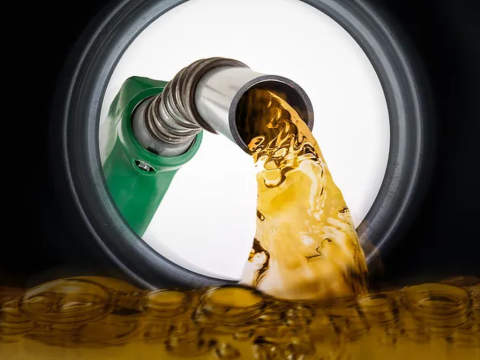By Mabinty M. Kamara
The pump price of Petrol, Diesel, and Kerosene has been increased from 21.50 New Leones to 25 New Leones, according to a new price list announced by the Petroleum Regulatory Agency (PRA) last evening.
It comes just as the Supplementary Budget was presented to Parliament on Monday by Finance Minister Sheku Ahmed Fantamadi Bangura.
The budget indicated that as part of revenue enhancement measures, the government of Sierra Leone is set to withdraw a total of NLe708.9 million (US$32.8 million) spent in the form of indirect subsidies during the first half of 2023 on fuel and petroleum products in Sierra Leone.
“To keep fuel pump price at NLe21.5 per litre, the Government has forgone NLe708.9 million (US$32.8 million) in the form of indirect subsidies during the first half of 2023. In addition, direct subsidies to be paid to Oil Marketing Companies amounted to NLe75 million (US$3.3 million) during the same period,” it reads in part.
However, while presenting the document to the House of Parliament, the Minister noted that the subsidies are of minimal benefit to the poor, rather, it benefits the middle and high-income households.
It stated that other key priority areas that benefit the poor such as health and education services “are being deprived of much-needed fiscal support, which adversely affects the delivery of essential services to the poor and vulnerable groups in our society.”
It emphasized that such practices promote income inequality in society by continuing to make the rich, richer while the poor remain poor, noting that it is unsustainable.
“Therefore to ensure a fixed, predictable, and stable excise duty on petroleum products to finance Government priority programmes such as the Free Quality Education Programme, FEED Salone, Free Health Care Initiative, and Social Safety Nets for the poor on a sustainable basis and without excessive borrowing, Government will gradually restore the full pass-through petroleum pricing formula starting on August 1, 2023,” the budget reads in part.
Contrary to the argument, a fiscal analyst from Budget Advocacy Network, Abu Bakarr Tarawalie described such action as more burden on the poor than a revenue generation measure.
“It will broaden the resource envelope –which in reality will be more of a benefit to the government than the people. It means more money to pay government workers and other expenditures whereas, transportation cost will increase which has a negative effect on the prices of commodities and other services which in the end will have a direct effect on the poor who are in the majority,” he said.
He recommended that the focus on how to broaden the tax base rather than withdrawal of subsidies on pump price which has a huge impact on especially the poor in society. “It doesn’t mean increasing taxes but looking for more revenue generation avenues.”
In the wake of the global crisis; COVID-19 and the Russia-Ukraine war there was public outcry over the price of fuel in Sierra Leone in the first half of 2022 from the initial cost of ten thousand to 21 thousand Old Leones. This led to a rapid increase in transportation costs and prices of other commodities across the country.
Another area highlighted in the budget statement that is subsidized by the government is electricity. “Total subsidies disbursed to EDSA for the first half of 2023 amounted to NLe274.6 million (US$13 million), including NLe263.2 million paid to Karpowership and NLe11.4 million to Transco/ CLSG,” it stated, adding that NLe29 million was also disbursed to the EGTC for the supply of fuel for the running of Government-owned generators in Freetown and the provinces.
Total expenditure and net lending for the first half of 2023 according to the statement, amounted to NLe8.8 billion (13.2 percent of GDP) compared to the budgeted amount of NLe9.7 billion (14.6 percent of GDP).
It added that capital expenditure and net lending amounted to NLe2.1 billion, about NLe799 million less than the allocated amount, mainly due to lower disbursements of project loans and grants by development partners during the first half of the year. Domestic capital spending amounted to NLe1.3 billion, exceeding the allocated amount by NLe105.6 million.
Copyright © 2023 Politico








